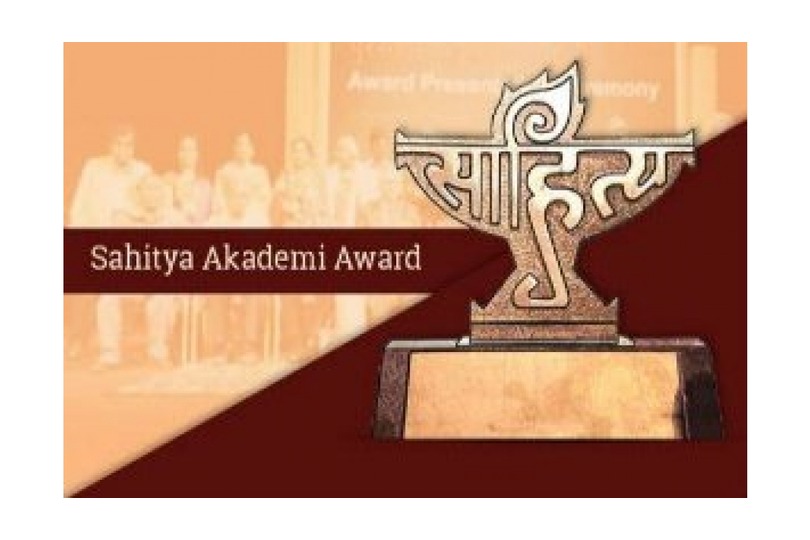Authors Discuss the Role of Literature in Imparting Values to Young Readers at the Sahitya Akademi’s Bal Puruskar
The Sahitya Akademi presented the Bal Sahitya Puraskar (Children's Literature Award) on Children's Day to 23 authors from different Indian languages at Triveni Kala Sangam.on Nov 15, 2022

The Sahitya Akademi presented the Bal Sahitya Puraskar (Children's Literature Award) on Children's Day to 23 authors from different Indian languages at Triveni Kala Sangam.
The event, which featured celebrated author Praka Manu as the chief guest and was attended by Sahitya Akademi President Chandrashekhara Kambara and Vice-President Madhav Kaushik, focused on the value of literature in forming young people's sociocultural values and the challenge of writing engaging stories for children that impart values without sounding preachy.
Manu urged people to avoid seeking money gains from pursuing the arts and cultures, suggesting that learning and enjoyment are adequate ends in themselves: I once answered a child's question, "Baal Sahitya ka kya fayda," What benefit do stories have for kids? I was at a loss.
Then, though, I recalled a Shayari by the illustrious Urdu poet Firaq, who had penned, "Poochte hain Woh Ishq se kya fayda/poochta hoon main fayde se kya fayda?" (People inquire as to the purpose of love; I inquire as to the purpose of having a purpose.) That is the response to everyone who wonders what the point of studying the arts is.
In contrast to the idea that knowledge and technical education can solve all societal ills, Kaushik spoke of the morals and humanity that stories and poetry teach to children: "We look back to some of our greatest writers like Rabindranath Tagore and RK Narayana, and they all wrote for children. Unfortunately, we have gone back to referring to children's books as "childish literature" in recent years.
Hamidullah was one of the recipients of the prize for his book on Kashmiri poetry, Daiel, which explores the psychology and experiences of young people today. Langwnani Bokhali Gotho, Ramchiari's book about Bodo society, received the prize. Kopila ka Rangbaru, Subba's collection of poems in Nepali, focused on the value of children embracing their home cultures and customs.
Other winners include: Diganta Oza (Assamese) for Dangor Manuhor Sadhu; Joya Mitra (Bengali) for Char Panch Jon Bondhu; Rajeshwar Singh ‘Raju’ (Dogri) for Sikh Matt; Arshia Sattar (English) for Mahabharata for Children; Kirit Goswami (Gujarat) for Khiskoli ne Computer Chhe Levu; Kshama Sharma (Hindi) for Kshama Sharma ki Chunina Bal Kahaniyan; Tammanna Beegar (Kannada) for Bavali Guhe; Jyoti Kunkoliekar (Konkani) for Mayuri; Birendra Jha (Maithili) for Uran Chhoo; A Sethumadhavan (Malayalam) for Chekkutty; Naorem Lokeshwore Singh (Manipuri) for Tomthin Amasung Khuji;
Rajeev Barve (Marathi) for Piyuchi Wahi; Narendra Prasad Das (Odia) for Kolaahala Naa Halaahala; Vishwamitra Dadhich (Rajasthani) for Machhlyan Ra Aanshu; Kuldeep Sharma (Sanskrit) for Sachitram Prahelikasatakam; Ganesh Marandi (Santali) for Hapan Mai; Manohar Nihalani (Sindhi) for Anokhiyun Aakhaniyun; G Meenakshi (Tamil) for Malligavin Veedu; Pattipaka Mohan (Telugu) for Baalala Taata Baapuji; Zafar Kamali (Urdu) for Hauslon ki Udan.
Beginning in 2010, recipients of the Bal Sahitya Awards wrote in a variety of genres, including prose, poetry, theater, and essays. Sunirmal Chakraborty (Bengali), Devendra Mewari (Hindi), and Basu Bevinagida were among the winners from the previous year (Kannada).

.jpg)
.jpg)
.jpg)
.jpg)
.jpg)

.jpg)
.jpg)
.jpg)
.jpg)
.jpg)



.jpg)
.jpg)










Sorry! No comment found for this post.